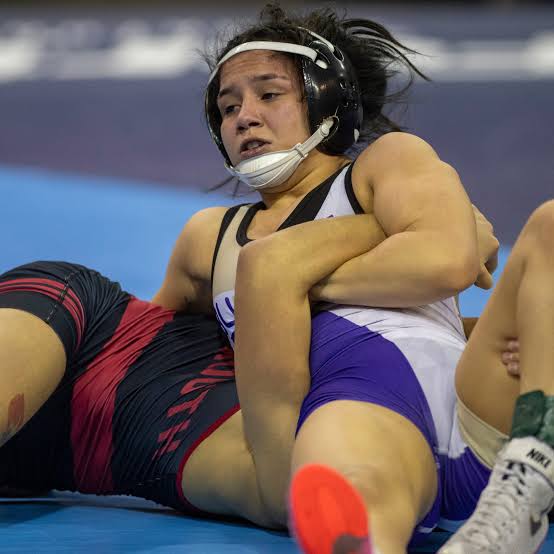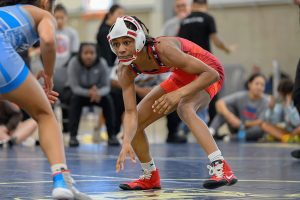
I’ll not wrestle again said by Indiana high School great wrestler, Juliana Ocampo who has been abused by their coach…
“I’ll not wrestle again,” said Juliana Ocampo, a name once synonymous with excellence in high school wrestling in Indiana.

Ocampo, a rising star in the sport, had been known for her unparalleled skill and determination on the mat.
However, her promise to leave the sport she loved came not from a lack of passion or ability, but from the abuse she endured from the very coach who was supposed to guide and support her.
For years, Ocampo had poured her heart and soul into wrestling. She had become a beacon of hope for young girls aspiring to break into a sport dominated by men. Her talent was undeniable, and she quickly made a name for herself at both local and state levels.
But as her success grew, so did the pressure from her coach, who had once seen her as a prodigy to mold but soon became a source of pain and suffering.
The coach, a figure once trusted by Ocampo, turned into someone whose behavior was both toxic and damaging. His treatment of her became increasingly harsh, often crossing the line from tough love to emotional abuse.
He would belittle her in front of the team, calling her weak and unworthy, even when she had just won a match. The verbal abuse was relentless, designed to break her spirit rather than build her up.
The pressure mounted as Ocampo’s success continued to highlight her as a target for his frustration and cruelty.
At first, Ocampo tried to brush off the harsh words, convincing herself that it was just part of the process—that every champion had to face such challenges.
But as the months passed, the abuse took a toll on her mental and physical health. Her passion for the sport began to fade, replaced by a growing sense of fear and resentment.
The sport that had once been her escape and her passion became a source of dread. Each practice felt like an endurance test, not just of physical strength, but of emotional resilience.
Despite her immense talent, Ocampo began to question her worth. The coach’s constant berating wore her down, leading her to believe she wasn’t good enough, no matter how hard she tried.
Her once joyful attitude towards wrestling had been replaced by a sense of obligation and self-doubt.
The final straw came after a major tournament, where Ocampo placed well but received nothing but criticism from her coach for not winning the gold.
It was in that moment, after another round of harsh words, that she made the decision to step away from the sport.
“I’ll not wrestle again,” she said, her voice trembling but firm. The words marked the end of an era for one of Indiana’s brightest high school wrestling talents.
Her decision sent shockwaves through the wrestling community, leaving many questioning the pressure and expectations placed on young athletes.
It also sparked a conversation about the toxic culture that can sometimes pervade sports, where the drive for success can overshadow the well-being of the athletes themselves.
Ocampo’s story serves as a reminder of the emotional toll that can come with the pursuit of excellence, and the importance of creating supportive environments for young athletes.
Her decision, painful as it was, highlighted the need for a cultural shift within sports—one that values the mental health of athletes as much as their physical prowess.





